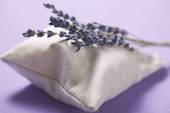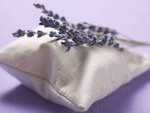// September 25th, 2009 // No Comments » // Aromatherapy
Using essential oils (e.o.) is not a practice that should be taken lightly, as the therapeutic grade e.o.’s have rhyme and reason for their use. They are very unique in there use and carry with them contraindications. When beginning with essential oil’s, one should take her time, getting to know and understand one e.o. at a time. The scent, the effects that it has on mood, the physical effects it may have on one, how the scent changes in time, quantity needed, and there are many other factors to be considered, all unique to each individual oil. Some oils blend nicely with other oils and some oils compete, not many can be used directly on the skin without a carrier oil. The practice of Aromatherapy is a very elegant profession, bringing the gifts of plants to those of us who are fortunate enough to have the experience to benefit from them.
So, we will start on our journey of understanding essential oils with a comprehensive study of one individual oil and then after studying a few, we will begin to explore blending, how’s, why’s and why not. Any questions, comments, additions… please email me from the contact page.
Let’s get started!
Lavender. Specifically, Lavandula officianalis (known as true lavender), as there are more than 30 different varieties of lavenders. There are many applications for lavender, it is calming, relaxing, and can balance one, both emotionally and physically. The word ‘lavandula’ is Latin, meaning ‘to wash’. Interestingly, it is used in cleansing cuts, wounds, and in Europe, it is use in treating burns in hospitals, as it also promotes cell renewal. It is a great addition to your 1st aid kit. A burn in the kitchen, voila! A drop, or two, saves the day. I cannot even tell you how many times I have used lavender in the kitchen!
It grows abundantly in France, England, Bulgaria, the Mediterranean, and here the U.S.A.! (Utah and Idaho have lavender farms, growing specifically to distill into essential oil. By the way, it takes 120 – 150 pounds of this lavender variety to make ONE pound of essential oil.
Personally, I feel that the diverse uses of this lavender make it the one to have, if you can only afford one essential oil. You can use it straight (directly on the skin), you can blend it with other oils, you can use it in a diffuser, in the bath, as a compress, as a facial mask. I bet that you can keep adding to this list. It’s even safe for children. Safety predicts that you discuss use with your doctor if you are pregnant, or have some other physical reason that you are under a doctor’s care.
As a perfume, it adds a floral note, it is somewhat sweet, with woody undertones. Lavender blends well with many essential oils. We will get to recipes at a later date. The carrier oil that I like best with lavender is Organic Jojoba Oil.
Give yourself a treat, if you have not experienced lavender essential oil, do it soon. You will find that you will always have it on hand for, oh!, so many reasons. Always buy high quality e.o., preferably organic, therapeutic grade.
Try these very simple recipes:
Headaches – 3 drops of Lavender : 1 drop of German, or Roman, Chamomile, massage the head and scalp with this for just a few minutes.
Calming and relaxing bath – mix 2 -3 drops of lavender e.o. with your soap gel, and, before getting into a warm bath, apply to your body, enter bath and soak for 15 – 20 minutes. Drink some chamomile tea while you soak. Enjoy getting into bed for a deep and peaceful sleep.
Lavender and distilled water in a spray bottle to cleanse the air, spray on your bed linens, spritz your closet…… you get the idea! The formula: 10 – 18 drops of lavender : 6 ounces of distilled water.
Enjoy and ask questions on my comment page. Thanks for the visit!
“Listen to the voice of nature, for it holds treasures for us all.” Huron Saying
 More On Aromatherapy…
More On Aromatherapy…

